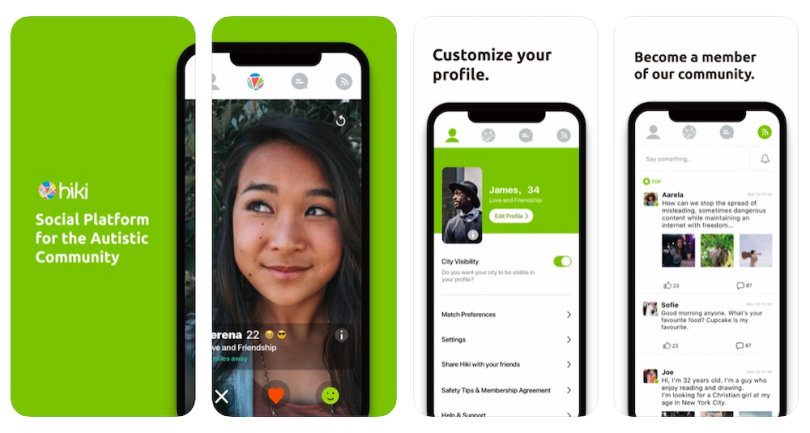
Experts estimate that more than 2 percent of America’s adult population is on the autism spectrum, and have found autism to be the fastest-growing developmental disability in the country. Yet very few tech innovations have been made to support autistic adults.
NYC-based entrepreneur Jamil Karriem refers to this phenomenon as the “autism cliff.”
“Society works under the misconception that autistic children somehow ‘grow out of’ their autism. People largely forget that autistic children grow up to be autistic adults,” Karriem told Built In. “But, almost eight out of 10 autistic adults report feeling lonely. And those of us who are lonely or socially isolated are 10 times more likely to die early than those of us who have strong relationships, regardless of their underlying neurological make-up. This is a public-health crisis that’s worth trying to solve.”
To tackle this issue, Karriem co-founded Hiki, a friendship and dating app created by and for the autistic community.
Like any other relationship app, users create profiles, check out the profiles of other users and strike up conversations through private messages. Members can also post content publicly and receive ‘likes’ or ‘shares.’ The goal of Hiki is to create either platonic or romantic relationships between members of the autistic community in a fun way.
Karriem has a cousin who is autistic, so this topic is personal for him. In fact, Karriem first came up with the idea for Hiki a couple of years ago when his cousin confided in him, saying he was having a hard time making friends. Karriem decided to do some research in the hopes that he could pass along some helpful resources, but found all the available sites at the time inadequate or even harmful.
“That was the beginning of my educational journey. Not just about the neurology of autism, but also about the health and wellness effects of loneliness,” Karriem said.
Karriem wants to be clear, though: he is not some “neurotypical savior” for the autistic community.
“Autistic adults don’t need that. They need advocates and allies who honor and validate and amplify their voices,” Karriem said. “The team behind this are what makes Hiki great.”
Hiki’s team is 70 percent neurodivergent, and the app was largely designed by an autistic woman with the guidance of field experts and about 50 autistic adults. Over the course of about 16 months, Karriem says the team took a “grassroots, community-based, collaborative” approach to developing Hiki, designing pages one at a time so they could get specific feedback from the community. In the end, everything from button size to notification display was designed with intention.
So far, Hiki appears to be doing its job, facilitating thousands of connections since its initial launch in 2019. Karriem says he’s gotten a lot of feedback from users expressing how exciting it is to have a way to connect with other neurodivergent adults who really understand them.
“We have the opportunity to create a space where people can feel honored and validated in their lives,” Karriem said. “If we can do that, we can increase people’s confidence, increase the quality of their life, enable people to lead more fulfilling lives. I think we can, quite literally, save people’s lives.”
Looking ahead, Hiki is ready for its next phase of growth. The company just raised a $1.3 million pre-seed round led by Chaac Ventures and Amazon exec Jeff Wilke, which Karriem says will be used to expand the product and grow the team. The company is currently looking for a new UX designer, data scientist and director of marketing.




